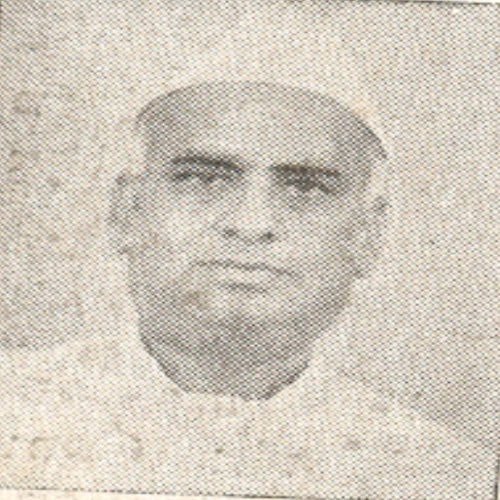Early Life
Brajeshwar Prasad was born on 22 October 1911, in Patna, Bihar to Shri Rai Brindaban Prasad and Smt. Sampurna Rani. He pursued law at Patna Law College and later set up the Civil Liberties Union (Gaya) in 1937. Prasad was interested in agriculture and was the founding member of Khetihar Mazdoor Sangh.
He started his political journey as the founder of the Gaya Youth League and he was appointed as its vice president. Prasad later became the Municipal commissioner for Gaya and served as the President of Town Congress Committee in 1945.
Role in India’s Independence Movement
He was an eminent freedom fighter and he enthusiastically participated in Indian National Congress’s national movements. He was involved in the Quit India Movement in 1942 and other national movements till 1944. He was also imprisoned for taking part in such movements.
Prasad followed Gandhian values. He wrote to Sardar Patel stating that Godse must not be executed. He stated, “It will be befitting Gandhiji’s memory to pardon this scoundrel along with others who have been sentenced. They should forcibly made to settle down in the Andamans as free man…”
Contribution to Constitution making
He was elected as a Constituent Assembly member from Gaya(Bihar) on a Congress party ticket. He contributed to discussions on citizenship, the preamble, Centre-State relations, and public health.
Rejecting the use of Mahatma Gandhi’s name in the Constitution of India, he stated, “..it is not a Gandhian Constitution. The foundation stones of this Constitution are the decisions of the American Supreme Court. It is the Government of India Act, 1935, repeated again… I do not want that the name of Mahatma Gandhi should be dragged in the rotten Constitution.”
Later Contributions
He was elected to the Provisional Parliament (1950-52). Later, he was elected to the first Lok Sabha (1952-57) and for a second term (1957-62). Prasad also had a special interest in foreign affairs and was a staunch proponent of the world state.
- He opposed the inclusion of the term ‘sovereign’ in the preamble and sought to include more pragmatic ideals. He proposed the use of the ‘socialist‘ in the Preamble and the Constituent Assembly rejected the same.
- He was a proponent of ensuring the principles of the Constitution of India are upheld. In relation to the citizenship of Muslims migrating from Pakistan, he stated, “It is only by a strict adherence to certain moral principles that nations progress… I see no reason why a Muslim who is a citizen of this country should be deprived of his citizenship at the commencement of this Constitution..“
- He suggested that upon a conflict between two states or Centre and State, the decision of the Centre should prevail, as against vesting the power with the Supreme Court. He believed in a unitary and federal system of governance, instead of a parliamentary form of government.
- He urged that the provinces must not have autonomous powers and should have only concurrent powers.
- He proposed the All-India Public Services Commission, instead of State Commissions, and that Civil Servants should be for the entire country, so as to prevent misuse of authority by the states.
- He recommended that all tribal areas be integrated and placed under an autonomous body set up by the Central Government. He did not want the respective state governments to govern the same.

